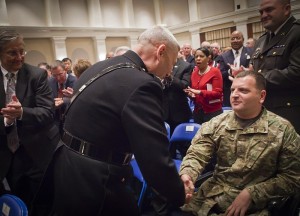Veronika Metonidze, the President of the Georgian Association in the USA, is stepping down after a productive four-year term. The Board of Directors extends their thanks to Veronika for her dedicated service and significant contributions during a period marked by several global and regional challenges. These include the COVID-19 pandemic, Russia’s invasion of Ukraine, and Georgia’s efforts towards European Union candidacy. For those interested in learning more about Veronika’s achievements and initiatives, a video retrospective is available. As a practicing US attorney and international consultant, Veronika brought her wide-ranging experience into her presidency. She focused on boosting U.S.-Georgian relations, especially in response to aggressive Russian expansionism, by reaching out to U.S. government institutions and the American public. Veronika has played a significant role in promoting Georgian culture, helping to increase awareness and appreciation for Georgia’s history both within the Georgian community and beyond.
Moving forward, Veronika will take on the role of Treasurer within the Association, continuing to offer her expertise and leadership on the board. She will also remain at the forefront of the Association’s critical advocacy efforts within the Central and East European Coalition and the American Coalition for Ukraine, as well as contribute to various upcoming projects.
Salome Tsereteli-Stephens has been elected as the new president effective March 8, 2024. Salome has been a member of the board and has taken on several projects during her membership. Salome has been working in the international development field for over 20 years and is committed to seeing Georgia advance its democratic, Western aspirations. She holds a law degree from Tbilisi State University and is currently director of Learning, Evidence, and Impact at the American Bar Association Center for Global Programs. She also serves as adjunct professor at the American University where she teaches a graduate-level course on project planning, monitoring, and evaluation at the School of International Service. She is fluent in Georgian, English and Russian and conversant in Turkish, German, and Spanish. Salome moved to the United States from Georgia in 2012 and resides in Maryland with her husband and three children. As a mother of Georgian-Americans, she is also passionate about strengthening cultural and linguistic ties between the two countries.
The Board of Directors wishes Salome the best and looks forward to working with her in continuing the important work of the Association.
John (Tsotne) Dadiani is stepping down from his role as treasurer after five years and will remain on the board of directors to continue his valuable contributions to the Association. The Board of Directors of the Association recognizes and thanks Tsotne for the tireless service to the common goals and his leadership for over nine years as the board member.
Eka Imerlishvili was voted in as the new secretary of the Association effective March 8. Eka has been a member of the board and has contributed valuable efforts to the work of the Association. We welcome her in this new role and wish her success. Eka is a strong advocate of gender equality and social inclusion and has worked, spoken and written on these issues over the past 15 years. As a recipient of US State Department’s Global Undergraduate Exchange Program (UGRAD) scholarship, she is a devout believer and supporter of inter-cultural exchange initiatives for their life-changing impact on individuals, communities and countries alike. Eka hopes that her new role as the secretary at the Georgian Association in the USA will contribute to strengthening ties between Georgia and the US through similar programs and initiatives.


